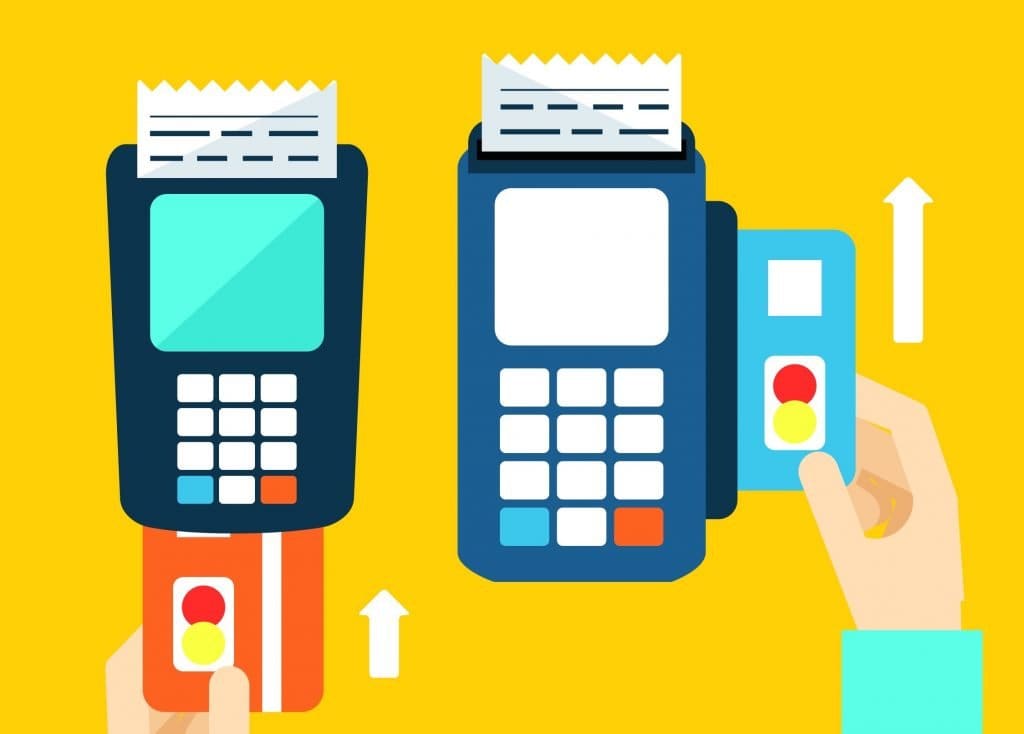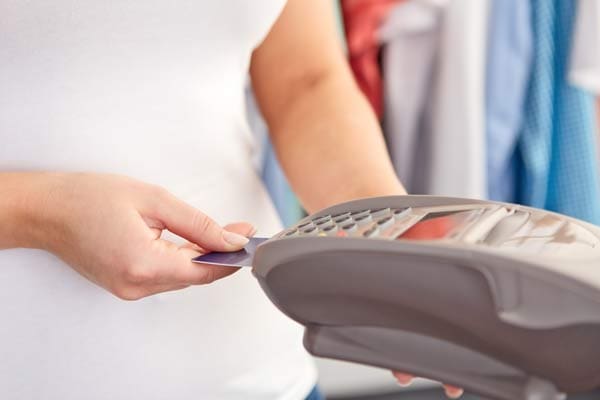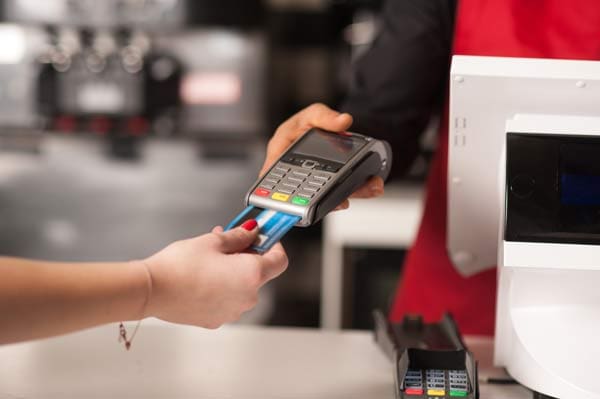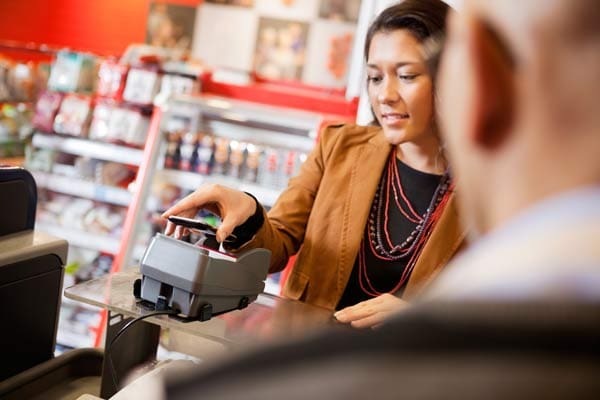
Table of Contents
ToggleTable of Contents
- What are Merchant Services?
- Why Do You Need Merchant Services?
- Why are Merchant Services Important?
- What you Look for in a Credit Card Payment Processor
- What to Avoid in a Credit Card Payment Processor
- Merchant Service Providers
What are Merchant Services?


Merchant services help businesses just like yours accept payments made by your customers. They provide merchants with credit card processing services that are only available through merchant service providers.
Some of the products provided by merchant service providers would be credit card terminals, mobile card readers and POS systems. These merchant services provide you with a merchant account.
Why Do You Need Merchant Services?


Merchant services provide an easy way to accept payment using a credit and debit card. Most payment service providers pass card purchases through secure payment depots.
Merchant service products can come in many forms, like a virtual terminal, mobile card readers or various other credit card terminals.
It’s very helpful to have a merchant service provider, primarily so that your business can actually obtain a merchant account.
A merchant account provides a business with a way to accept alternate forms of payment from cash, like debit and credit card purchases.
This provides a very convenient and easy purchase method for both the business owner and the customer. Most POS systems will provide a very secure payment gateway to ensure that the customer’s payment is safe and secure.
The gateway provider will make sure that the customer’s private information remains private.
Why Are Merchant Services Important?


Merchant services are important because they give your business more ways to accept payments than just cash. Merchant services also allow your business to be very flexible with in which ways they accept payments.
Depending on the POS software and system that you choose, your business could accept cards via a physical terminal, a mobile card reader or whatever is easiest and most convenient for your business.
Some POS systems can even help with inventory management and project management.
Your business probably needs a merchant service provider. This is because it is the only way to gain a traditional merchant account.
The importance of a merchant account is that it is the only way to allow you to accept credit cards. It is vital, especially in these days as the use of cash continues to dwindle, that your business be able to accept credit card payments.
As payment technologies continue to evolve, so must your business to be able to satisfy your customers.
What to Look For in a Credit Card Payment Processor


When you ask, “How Do I choose a Merchant Provider?” Basically, you want a processor that offers either very low or actually zero credit card processing fees and will not try to sneak any hidden fees into your current rate.
You want a processor that very obviously puts your needs above their own. Doing this will save your business a fortune as you begin to see just how much many credit card processors charge incredibly high rates with all kinds of different transaction fees, many of which you’ve probably never even heard of.
Find a processor that is upfront with you and has plenty of experience in low cost credit card processing.
What to Avoid in a Credit Card Payment Processor


Many credit card processing companies will try to sneak hidden fees onto their customers, hoping that they will not notice their processing rates suddenly skyrocket.
This is hardly a rare occurrence in the credit card processing industry. This has been a practice in the payment card industry for many years, and many companies are continuously basking in the profits that they’re taking from businesses just like yours.
Avoid processors that seem to only be interested in turning your profit into their profit.
Brick & Mortar
SQUARE
- Fees – Square offers a flat fee of 2.75% on swiped transactions, and a 3.5% + 15 cents fee on all manually entered transactions.
- Reputation – Square is largely known across businesses everywhere, but is used mostly by smaller businesses. This is because they have fairly consistent pricing that doesn’t differ from the rates that they provide.
- Terminals and Systems – Square Register at $999.00, Square Terminal at $399.00, Square Stand for Contactless and Chip at $199.00, Square Reader for Contactless and Chip at $49.00, Square Reader for Mobile Devices at $10.00.
Dual Payments
- Fees – Dual Payments offers a zero fee processing system that takes the processing fee away from you, the business owner, and transfers it to the customer.
- Reputation – Dual Payments has a reputation of being one of the first zero fee processing companies in the United States and is consistently growing month by month. Businesses processing with them will see significant monthly savings from their previous processor.
- Terminals and Systems – Dual Payments offers three different EMV terminals, the Ingenico ICT220, Pax S80 and Verifone VX520. Dual Payments will actually lend you a terminal at no cost for as long as you stay with them.
CENTURY BUSINESS SOLUTIONS
- Fees – Century Business Solutions offers a fee of 2.69% + 19 cents on swiped transactions, and a fee of 3.69% + 19 cents on manual transactions.
- Reputation – Century Business Solutions has been around for a long time and is known for providing a wide variety of payment systems, from online to brick and mortar and mobile processing.
- Terminals and Systems – They currently offer six different terminals; First Data FD410, First Data FD130, Ingenico iCT220, Verifone VX 680, Castles Vega3000 and Castles MP200L. Their terminals vary depending on which terminal your business chooses.
CHASE MERCHANT SERVICES
- Fees – Chase Merchant Services offer a 2.75% fee on swiped transactions, and a 3.5% + 15 cents fee for manual transactions.
- Reputation – Chase Merchant Services is known to be a payment processor that works well with large businesses that process large volumes, but not as well with smaller businesses because of the higher fees.
- Terminals and Systems – Chase offers countertop terminals, pay at table restaurant terminals, on the go solutions, online POS process solutions, and virtual terminals. Each type of terminal varies greatly based on which technology is chosen.
HELCIM
- Fees – Helcim offers a subscription based pricing model, with retail being $15 a month, and online at $35 a month, along with various fees outlined on their website.
- Reputation – Helcim is known for being one of the few processors that work on a monthly subscription, rather than charging per transaction fees. They’ve been known to be highly recommended for medium to bigger businesses.
- Terminals and Systems – Helcim offers a mobile credit card card reader at $30.00, a wired countertop card reader at $229.00, a short range wireless reader at $649.00, and a long range wireless reader at $549.00, as well as a virtual terminal solution.
PAYLINE DATA
- Fees – Payline Data works on an interchangeplus pricing model. They charge an interchange fee and a markup fee. So, their pricing is .2% + 10 cents and a $10 monthly fee for swiped purchases, and .3% +20 cents and a $20 monthly fee for manual purchases.
- Reputation – Payline has a reputation of working well with businesses of all sizes, rather than just a certain size of business.
- Terminals and Systems – Payline Data offers the Clover Go for $125 + $11 a month, and the Ingenico iCT220 for $275.
PAYMENT CLOUD
- Fees – Payment Cloud offers a swiped purchase fee of anywhere from .05-.3% + 10 cents, and a manual purchase fee of anywhere from .1-.5% + 15-25 cents.
- Reputation – Payment Cloud prides themselves on covering high risk types of merchant accounts. They are known for their ability to take on virtually any client that needs a payment processor. If you are a highrisk business, like an insurance firm or real estate company, Payment Cloud could be right for you.
- Terminals and Systems – They offer a virtual terminal, as well as four brick and mortar credit card terminals; Ingenico iCT 220, Ingenico iCT 250, Ingenico iPP 310, and Verifone VX 520 at varied prices depending on the model chosen.
SAM’S CLUB MERCHANT SERVICES
- Fees – Sam’s Club Merchant Services offer a couple different pricing models. First, they offer a “value rate” pricing model that starts at 1.29% + 15 cents per transaction. Second, they offer a “simplified pricing” model that starts at 2.29% + 19 cents per swiped transaction, and 3.29% + 19 cents per manual transaction.
- Reputation – A newer merchant service provider, Sam’s Club is usually not highly thought of. This is because of high rates and the requirement of a lengthy, longterm contract.
- Terminals and Systems – Sam’s Club Merchant Services offer the Clover Flex, Clover Go, Clover Mini, and the Clover Static. Each comes at a different price available upon contacting them directly.
FLAGSHIP MERCHANT SERVICES
- Fees – Flagship Merchant Services offers a confusing pricing structure. They charge $99 a year for a PCI compliance fee, $7.95 for a monthly fee, another monthly $7.95 to accept online payments, and a $25 monthly minimum.
- Reputation – Flagship Merchant Services used to be regarded as the standard in credit card processing. However, due to their confusing pricing methods and very high fees, they have fallen a bit in the minds of business owners.
- Terminals and Systems – Flagship, similar to Sam’s Club, exclusively used Clover products to process payments. These come in the form of the Clover Flex, Clover Station, Clove Mini, Clover Mobile, and Clover Go and vary on price based on model.
FATTMERCHANT
- Fees – Subscription based pricing model starting at $99 a month.
- Reputation – One of the first processors to go based on a subscription pricing model, rather than a per transaction fee, FattMerchant is regarded as a very reputable merchant service company among bigger businesses.
- Reputation – One of the first processors to go based on a subscription pricing model, rather than a per transaction fee, FattMerchant is regarded as a very reputable merchant service company among bigger businesses.
- Terminals and Systems – FattMerchant offers both physical and virtual terminals. Specifics about the types of terminals that they offer can be found upon contacting them.
Online Processors
STRIPE
- Fees – Stripe charges 2.9% + 30 cents per transaction.
- Reputation – Stripe is a highly regarded online processor. They process exclusively online, and have a very big customer base thanks to their straightforward pricing model.
- Terminals and Systems – Stripe uses virtual terminals. Prices per terminal varies, and Stripe should be contacted for the most up to date prices.
SHOPIFY
- Fees – Shopify’s pricing varies greatly depending on which of the three plans you choose. They have a Basic, Standard, and Advanced plan for customers to choose from. Each increasing level has a higher monthly cost, but has lower per transaction fees.
- Reputation – Shopify is used mostly for small to medium sized businesses, and is highly regarded among business of that size.
- Terminals and Systems – Shopify offers an all-in-one online and retail POS terminal called the “Shopify Retail Kit”. It is built with the purpose of providing both online and retail processing for the products in both the in-store and online shopping cart.
QUICKBOOKS ONLINE MERCHANT SERVICES
- Fees – Quickbooks offers a 2.4% fee for swiped transactions, 2.9% for invoiced transactions, and 3.4% for manual transactions. Each fee has an additional 25 cents per transaction added to each fee.
- Reputation – Quickbooks Payment Processing specializes in online and mobile processing. They have been known to work best with companies that already use Quickbooks’ accounting software to accept integrated payments for their personal or business accounting.
- Terminals and Systems – Quickbooks has a variety of products available on their website and they should be contacted if you have interest in their services.
PAYPAL PAYMENT PROCESSING
- Fees – PayPal Payment Processing charges 2.9% + 30 cents on swiped transactions, and 3.5% + 15 cents per manual transaction.
- Reputation – People usually ask, “Is PayPal a merchant service provider?” Yes, PayPal is a merchant service provider for medium and small businesses. However, they are more known for processing smaller online transactions.
- Terminals and Systems – PayPal exclusively offers a virtual terminal to process credit card payments. If you’re wondering “How long does it take to set up a PayPal merchant account?”, you should expect to wait around five business days as PayPal tries to set up your merchant account with your bank account.
AMAZON PAY
- Fees – Amazon Pay charges a 2.8% + 30 cent processing fee on all transactions.
- Reputation – Amazon Pay, a newer processor, processes exclusively online. They have high reviews across the internet and work best with medium sized businesses.
- Terminals and Systems – Amazon Pay exclusively uses a virtual terminal. Prices for their virtual terminals can be found upon contacting Amazon Pay directly.
BLUEPAY
- Fees – BluePay has a confusing tiered pricing model that can be found on their website. On top of that, they charge many fees, including an early termination fee.
- Reputation – BluePay largely has a poor reputation because of their pricing model and expensive, hidden fees and cancellation fees. Most companies that choose BluePay are medium sized.
- Terminals and Systems – BluePay advertises on their website that they are compatible with all major types of terminals.
BRAINTREE
- Fees – Braintree offers a flat fee of 2.9% + 30 cents on all transactions.
- Reputation – Braintree, a branch of PayPal, processes almost exclusively online. The additional benefit that Braintree offers is the ability to accept PayPal and PayPal credit cards, in addition to being able to accept all major credit cards like Visa, Mastercard and American Express.
- Terminals and Systems – As mentioned earlier, Braintree works almost exclusively online. Besides offering a virtual terminal, they offer an in-store, contactless card reader. The card reader, however, is meant for small volume purchases and is not recommended for bigger storefronts.
PAYSIMPLE
- Fees – PaySimple offers two different monthly payment methods; Pro or Enterprise. Pro starts at $49.95 a month, Enterprise at $99.95 a month. The difference between the two pricing methods is that Pro offers a fee from 2.49% + 29 cents per purchase, while Enterprise has customized rates based on what the business owner wants.
- Reputation – PaySimple can be used for an online store or an in-store businesses, but usually is more highly regarded overall for smaller businesses.
- Terminals and Systems – PaySimple offers a virtual terminal for online businesses, as well as a credit card terminal or an iPad POS system for storefronts and a mobile app capable of accepting mobile payments for on-the-go businesses.
Non-Profit Processors
DHARMA MERCHANT SERVICES
- Fees – Dharma seeks to keep your fees low. Their costs will vary depending on what type of business you are running, but their retail fees stay around .15% + 7 cents per transaction.
- Reputation – Dharma Merchant Services has a strong reputation of being the best credit card processor for non-profit businesses. This is thanks to their lower rates and willingness to adapt to any changes that your non-profit might face.
- Terminals and Systems – They offer a few different ways to accept payment depending on what your business is looking for. A few terminals they offer are the Verifone Vx520 at $179, the FD-130 at $269, and the Poynt at $599.
iATS PAYMENTS
- Fees – iATS fees can vary, but usually fall between 2.49% and 3.2% per card transaction, depending on what kind of card is used and if the purchase is swiped or manual.
- Reputation – iATS Payments is solely a non-profit processor. Unlike Dharma, who also work with retail businesses and restaurants, iATS is known for just working with nonprofits, and is highly regarded in doing so.
- Terminals and Systems – iATS offers credit card readers in a couple different ways. Their readers can attach to already existing POS systems, computers or mobile devices in addition to the iATS app.










